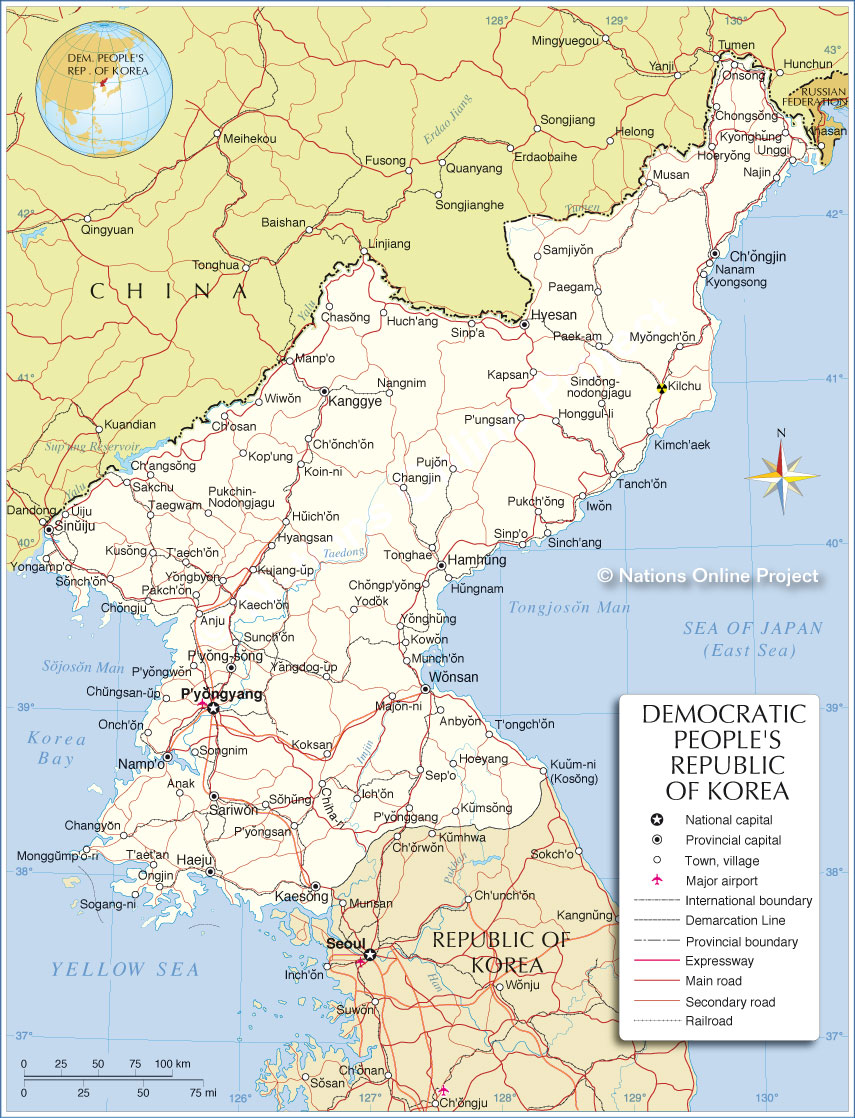Home  |
___ Political Map of North Korea |
Map is showing North Korea on Korean peninsula and the surrounding countries. Political Map of North Korea |
One World - Nations Online .:. let's care for this planet Promote that every nation assumes responsibility for our world. Nations Online Project is made to improve cross-cultural understanding and global awareness. More signal - less NOISE |
| Site Map
| Information Sources | Disclaimer | Copyright © 1998-2023 :: nationsonline.org |